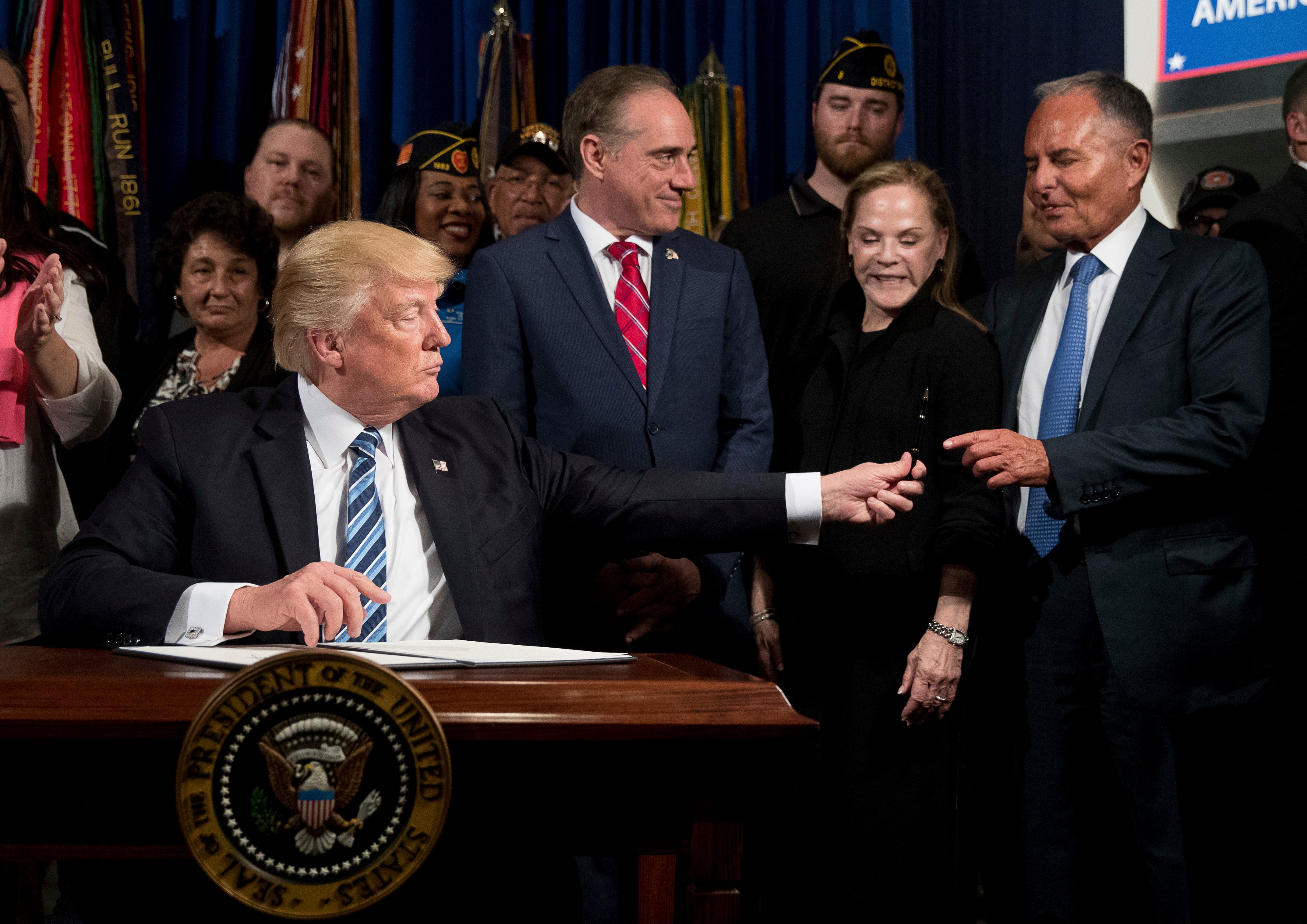A trio of executives with personal ties to President Donald Trump wielded even more influence over Veterans Affairs policies while he was in office than previously thought, running afoul of federal transparency and lobbying laws, according to a new report released by the House Oversight Committee on Monday.
The result of the Democrat-controlled panel’s months-long investigation found that the arrangement “violated the law and sought to exert improper influence over government officials to further their own personal interests.”
That included communications with Trump’s daughter, Ivanka, and son-in-law, Jared Kushner, using personal email accounts to evade public disclosures of the discussions into department reforms and decisions about upgrading VA’s electronic medical records system.
The three men at the center of the controversy — Marvel Entertainment CEO Ike Perlmutter, primary care specialist Dr. Bruce Moskowitz, and attorney Marc Sherman — were all members of Trump’s Mar-a-Lago resort in Florida in 2017 when Trump tapped them to be unofficial advisors to his administration on VA issues.
RELATED

At the time, White House officials insisted that the arrangement was simply an opportunity for the president and key advisors to gather ideas from outside business experts.
But a ProPublica investigation into the group in 2018 found the trio had significant access to and influence over VA officials, without any official public oversight role.
In Monday’s report, House Oversight Committee Chairwoman Carolyn Maloney, D-N.Y., and House Veterans’ Affairs Committee Chairman Mark Takano, D-Calif., blasted the “secret role” of the men in high-level VA policy discussions, in violation of rules regarding transparency in federal advisory panels.
That included the men helping steer policy decisions on medical records issues, including potentially monetizing VA patient data. Along with emails to senior VA staff, the trio also frequently contacted senior White House staff on VA policy issues and briefed the president on their proposals, all without any official federal role.
In documents released by the committees, White House officials granted the men significant behind-the-scenes access, raising questions among federal employees as to their roles in policy decisions.
RELATED

Emails released by the panels show concerns among senior VA officials that the group’s work may be in violation of the Federal Advisory Committee Act, which outlines procedures for creation and operations of advisory boards to ensure they are acting in the public’s interest. Those questions were dismissed and ignored.
Trump did not offer a public response to the report. Efforts to reach the three unofficial advisors were not immediately successful.
Maloney and Takano said the new revelations show the need for new legislation to “ensure the American people know who is providing advice to federal policymakers and require agencies to disclose whether individuals on advisory committees have conflicts of interest.”
The full set of documents released by the committees is available online.
Leo covers Congress, Veterans Affairs and the White House for Military Times. He has covered Washington, D.C. since 2004, focusing on military personnel and veterans policies. His work has earned numerous honors, including a 2009 Polk award, a 2010 National Headliner Award, the IAVA Leadership in Journalism award and the VFW News Media award.




